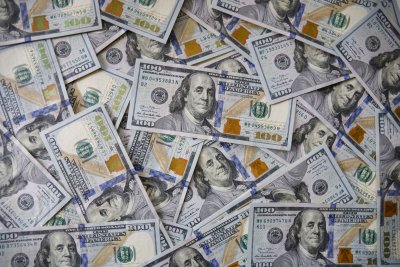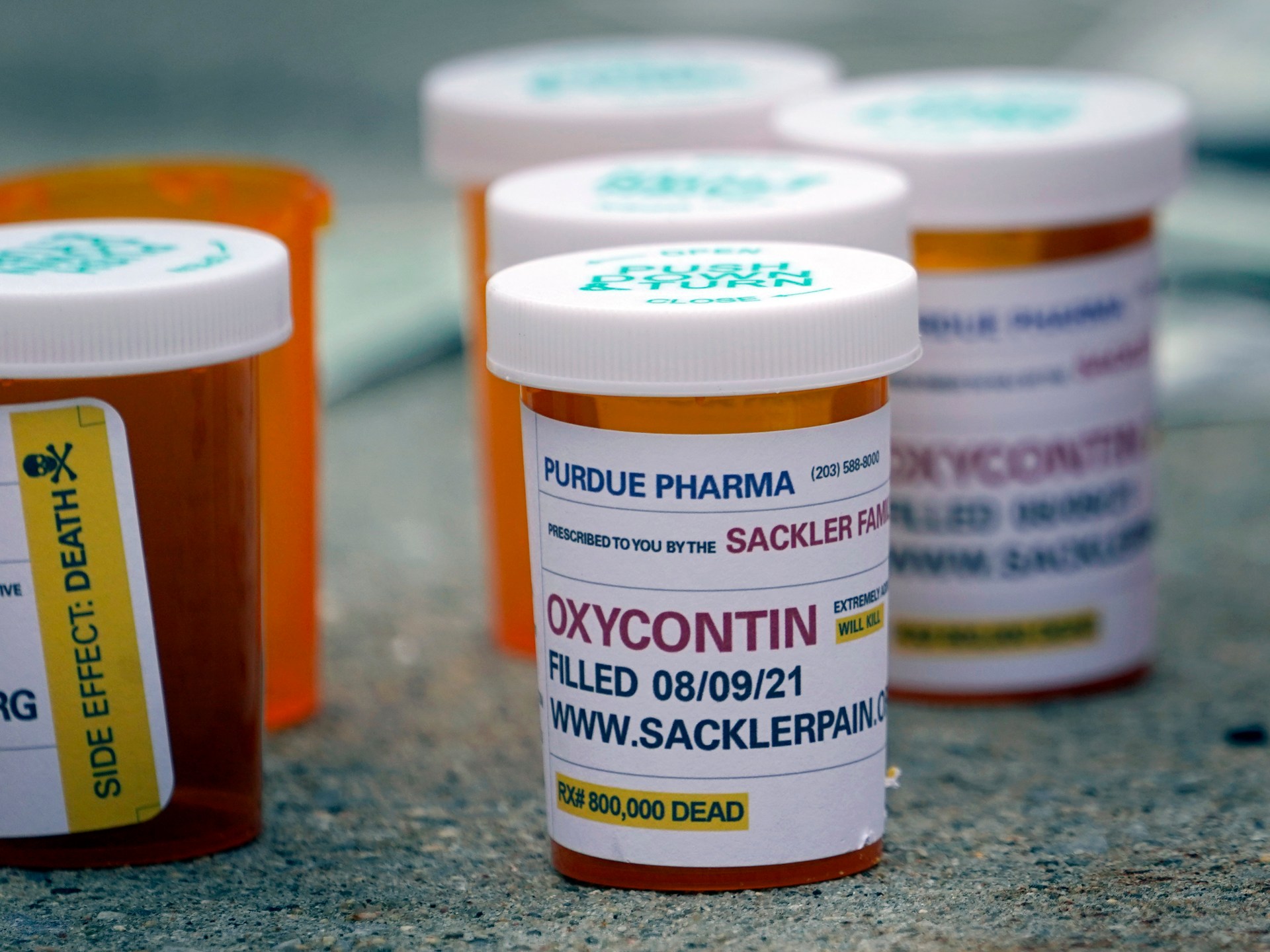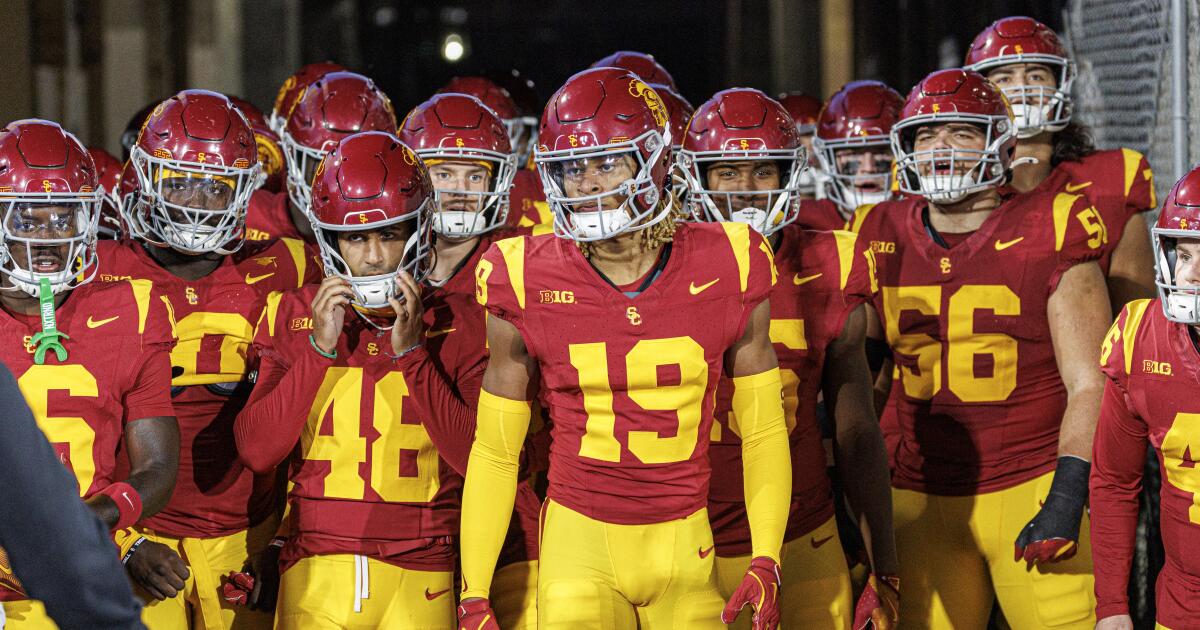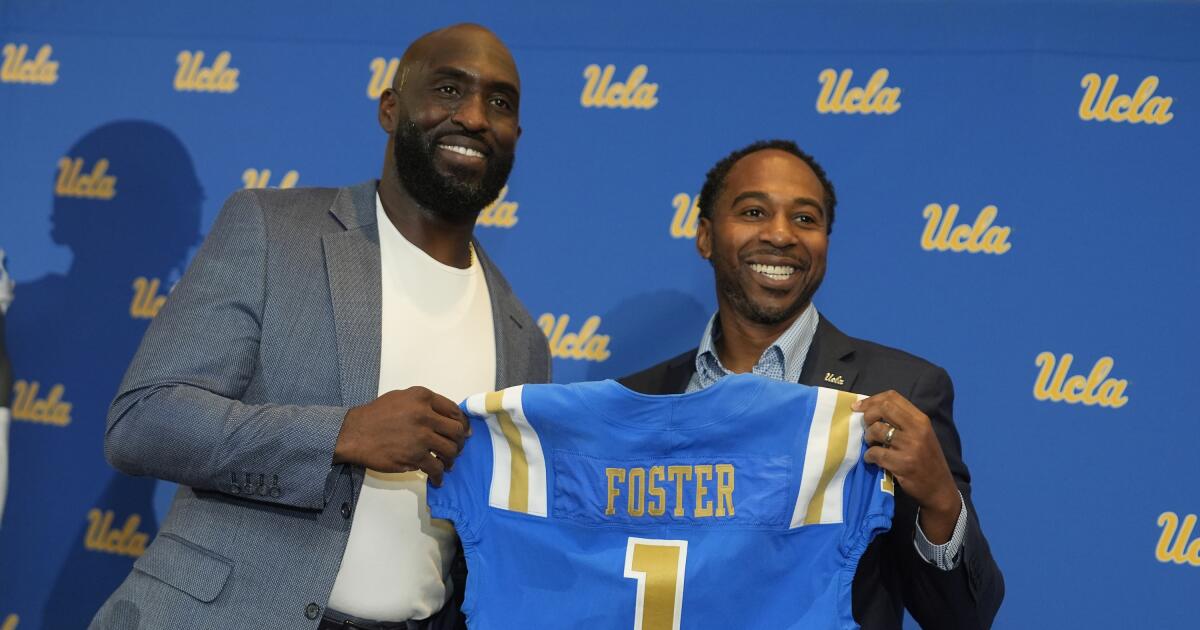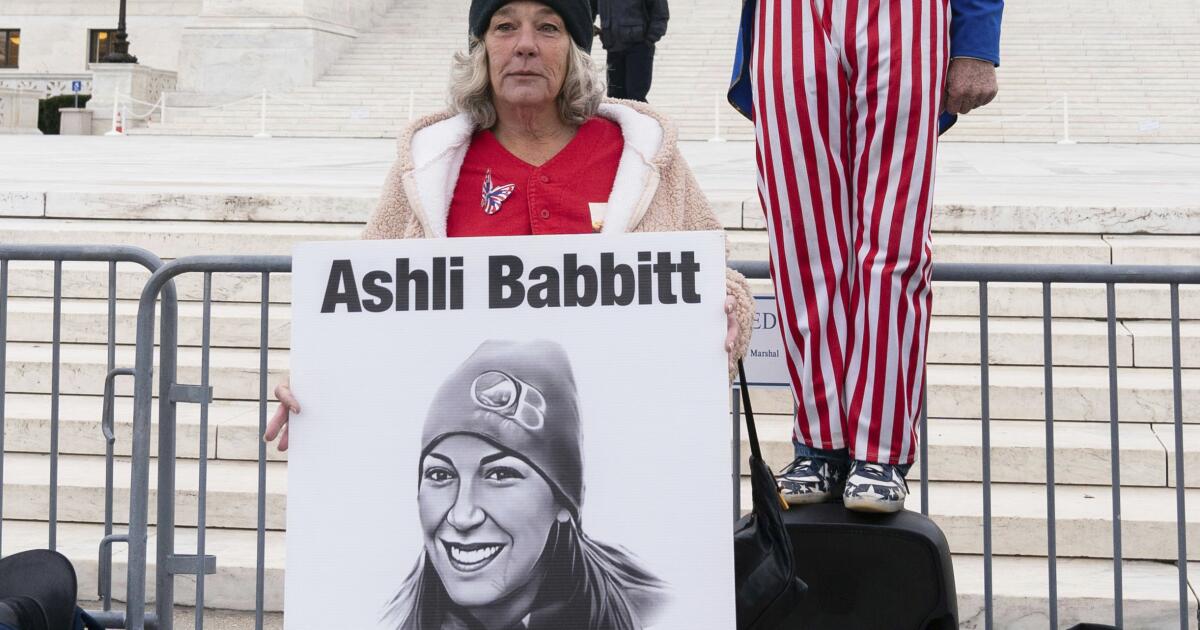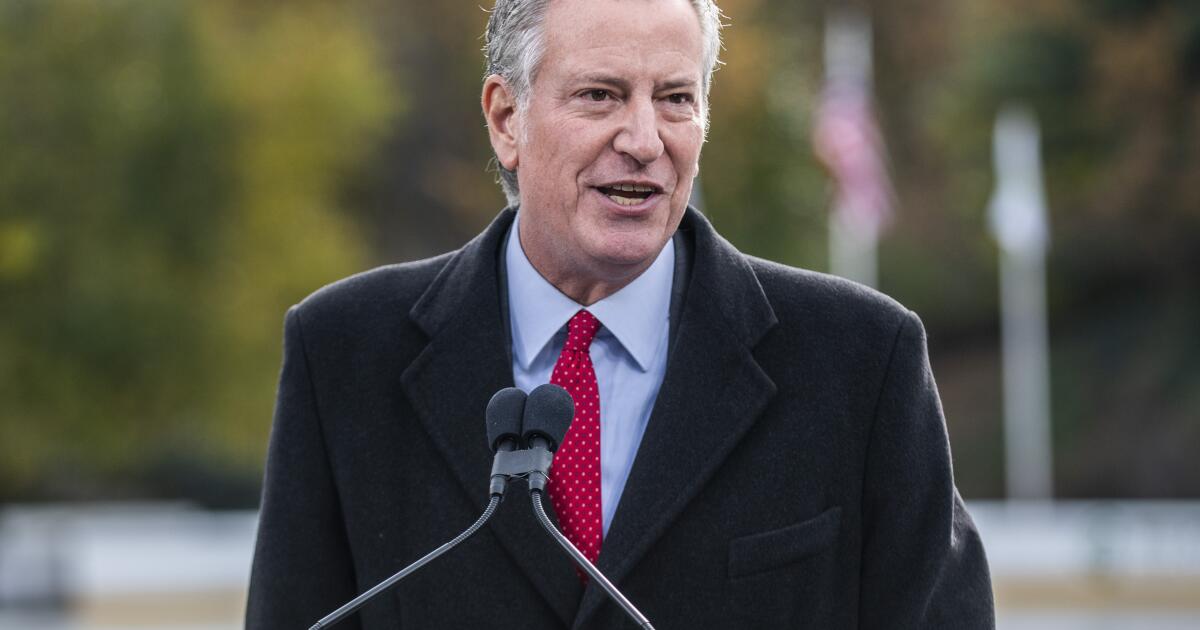Like a quarterback who completed offseason workouts, spring practices and fall training camp, Martin Jarmond had been preparing for this moment for nearly a year.
On Saturday came the big unveiling.
The UCLA athletic director discussed with The Times the plans for his department’s operations in the new college sports world created by the House settlement agreement with the NCAA that will allow schools to pay athletes directly for the first time starting July 1.
The big takeaways: UCLA will distribute $20.5 million in revenue sharing — the maximum allowed under the settlement — while keeping its Olympic sports programs and athletic department staff intact. The school will also preserve scholarship limits at their current levels for at least one year in order to distribute more revenue sharing money to each player.
“This is a pivotal moment in collegiate athletics, and we have to continue to invest in our athletics program to compete at the highest level,” Jarmond said. “That’s why student-athletes come to UCLA, to get the best education and compete at the highest level, and we must invest in our student-athletes to provide that championship-level experience.”
While Jarmond would not divulge the specifics of his revenue-sharing arrangement, it’s expected that UCLA will follow other Power Four conference schools in using U.S. District Judge Claudia Wilken’s back-payment formula as a model for current athletes. Under this formula, which will distribute $2.8 billion to athletes who competed from 2016 to 2024 to compensate them for lost name, image and likeness opportunities, roughly 75% of the money will be shared with football players, 15% with men’s basketball players, 5% with women’s basketball players and 5% with all remaining athletes.
“We’ve worked really hard to look at the House settlement, along with other factors,” Jarmond said, “to determine how we were going to split up the revenue share.”
Jarmond told The Times last year that he anticipated a bigger share of revenue going to football and men’s basketball players because they were “responsible for more of the revenue based on the House settlement and the back pay for NIL and all those things.” Payments will rise each year as part of the 10-year settlement agreement.
Even though roster limits could eventually rise to 105 for football and 15 for men’s basketball as part of the settlement, keeping scholarship limits at their current levels — 85 for football, 13 for men’s basketball — will allow UCLA to provide each player on scholarship a bigger share of revenue. As part of the settlement agreement, any money used for scholarships (which have an estimated value of $65,000 per athlete at UCLA) comes out of the revenue sharing pot. Jarmond said his department would reevaluate this arrangement in a year to ensure it was best serving the school’s athletes.
UCLA is also committed to preserving its Olympic sports that have provided the lion’s share of NCAA championships in an athletic department widely regarded as one of the best in the nation. Jarmond said there would be no staffing cuts, but some personnel might be reassigned to better serve the athletic department.
“We are looking at reallocating staff,” Jarmond said, “to positions that better meet our needs in a changing landscape.”
The ability to pay players directly could help UCLA in ways that go beyond compensating its athletes. Revenue sharing arrangements could help narrow the resource gap between the Bruins and other Big Ten Conference schools that had more deep-pocketed NIL collectives engaging in pay-for-play practices.
Now, all new NIL deals exceeding $600 must be approved by NIL Go, a clearinghouse created by the College Sports Commission to analyze deals to ensure they serve a valid business purpose and provide fair market value.
It’s expected that all existing college NIL collectives — including UCLA’s Men of Westwood (which serves men’s basketball), Bruins for Life (football) and Champion of Westwood (women’s basketball, Olympic sports) — will essentially become marketing agencies that try to find endorsement deals for athletes.
Jarmond said UCLA was seeking a third-party partner to help secure so-called true NIL opportunities. Being based in Los Angeles should provide Bruins athletes with a clear advantage in securing marketing deals, Jarmond said.
Other challenges remain. Having traveled to Washington, D.C., to lobby for federal NIL legislation, Jarmond said he believed it was necessary to eliminate the imbalance that exists with more than 30 states having their own NIL laws.
While distributing $20.5 million in revenue will be another financial blow to an athletic department that has run $219.5 million in the red over the last six fiscal years — though the entire debt has been covered by the university, bringing the balance to zero — Jarmond said he has long championed athletes being paid and believes the move is long overdue. As part of the settlement involving back pay to athletes, UCLA’s share of NCAA revenue will be reduced by more than $1 million annually for the next 10 years.
UCLA’s finances could soon improve under a College Football Playoff revenue sharing agreement that is expected to provide Big Ten schools an additional $8 million to $12 million annually beginning in 2026. That’s on top of media rights deals tilted heavily in favor of Big Ten and Southeastern Conference schools, giving the Bruins another infusion of much-needed cash.
The athletic department has a new ally in Chancellor Julio Frenk, who signaled his intention to be closely involved with the school’s sports programs during a recent interview with The Times.
“Chancellor Frenk has been extremely supportive of athletics and the impact that it has on our community,” Jarmond said. “He has been supportive of our efforts every step of the way. He hit the ground running during a pivotal time not just for athletics but the university, and he has demonstrated support at a high level and I’m grateful for his leadership at such a pivotal time for athletics.”
While acknowledging that UCLA athletics needed to be more creative with revenue generation as part of what he called “a huge moment” that would forever change the trajectory of college sports, Jarmond said the school’s commitment to sports was unwavering.
“We have to be bold and innovative in this new world,” Jarmond said. “UCLA has always been on the forefront and been a leader and that’s not going to change. We will embrace this new era and we will continue to support our student-athletes at a championship level.”
